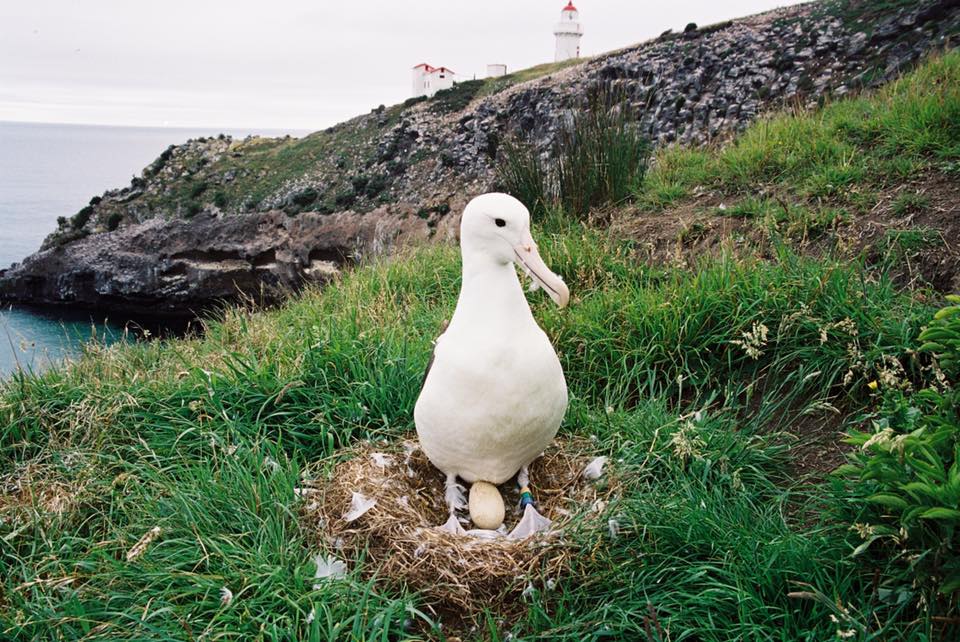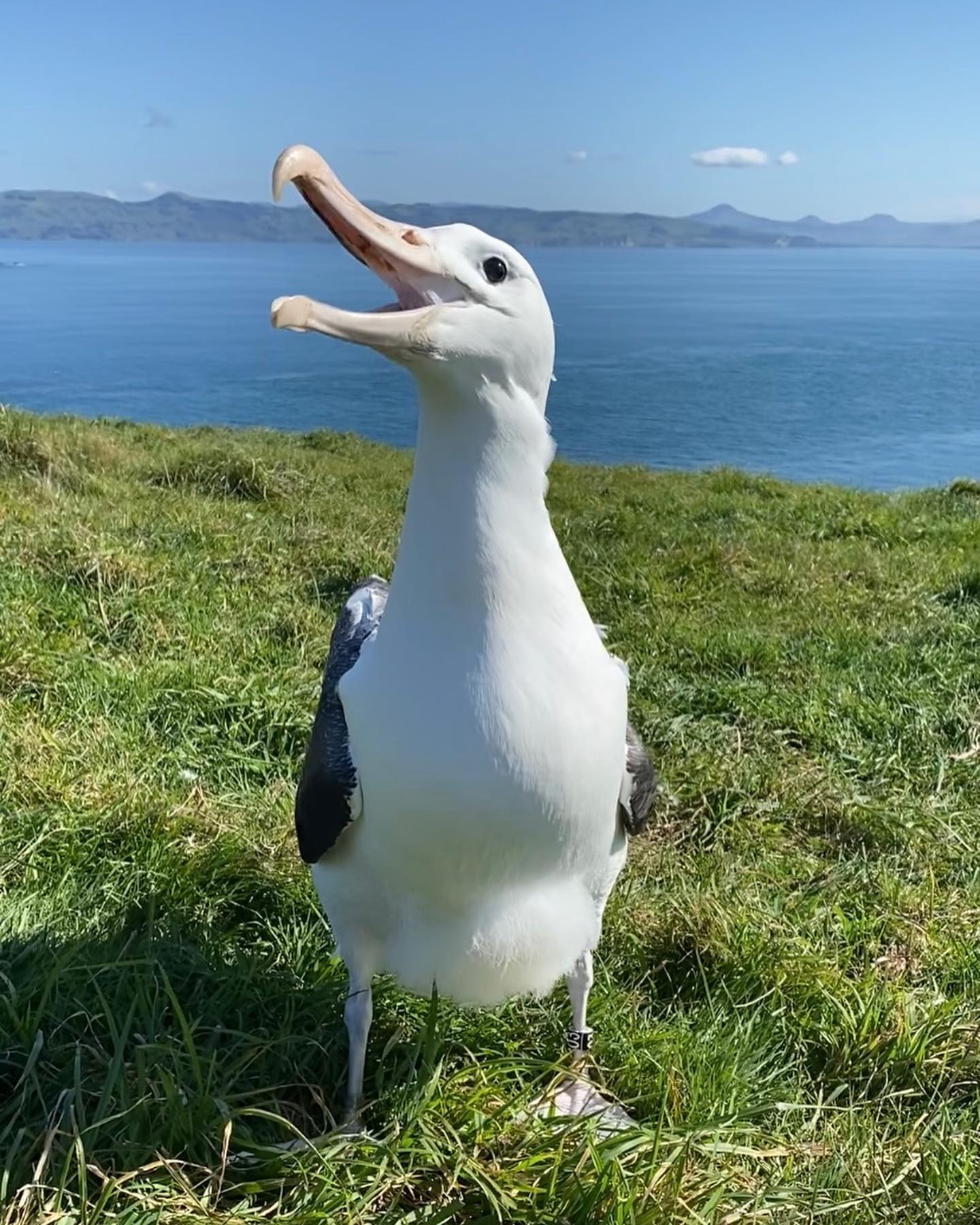
A colour-banded Northern Royal Albatross rises over its egg at Taiaroa Head in November 2016
Four recently laid eggs of the globally Endangered and nationally Vulnerable Northern Royal Albatross Diomedea sanfordi are suspected to have been stolen from the mainland colony at Taiaroa Head/Pukekura on the Otago Peninsula, South Island, New Zealand (click here). The eggs were noticed missing on 10 November during routine checks by Department of Conservation (DOC) rangers, who have been left feeling “devastated”. It is thought the eggs may have been taken as there are no signs they were eaten by predators. DOC compliance officers and police are investigating.
The colony is a fenced nature reserve, with entry by permit only. Northern Royal Albatrosses are protected under the Wildlife Act 1953 and it is an offence to kill, injure, harass or disturb them (including their eggs). It is reported that the affected parents have all been given dummy eggs to incubate in case they will be needed as foster parents. This is a normal management technique in the colony for birds that lose their own eggs.
In a New Zealand Herald article on the incident, Lyndon Perriman, who worked as a ranger at Taiaroa Head between 1989 and 2016, said there had been no such occurrences during this time there. He thought it unlikely that a pest predator was responsible: “Stoats, ferrets or cats... they certainly couldn’t take away an albatross egg without breaking it.” The supposed theft has now prompted a review of security at the site, Lyndon noting there was a gap in the fence.
It seems the only previous incident of stealing eggs at Taiaroa Head was in the very early days in the 1930s when eggs were taken each year prior to Lance Richdale protecting the solitary breeding pair until its chick fledged (click here). For albatrosses (which usually breed on non-inhabited islands) a somewhat similar case occurred with 15 breeding Laysan Albatrosses Phoebastria immutabilis being killed and their eggs smashed by juvenile vandals within the fenced colony in the Kaena Point Natural Area Reserve on the Hawaiian island of Oahu. This incident led to a successful prosecution (click here). ACAP Latest News will report if the Taiaroa Head egg loss results in anything similar.

The orphan Northern Royal Albatross close to fledging, photograph by Laura Findlay
Related news is that the 2021/22 breeding season resulted in 25 Northern Royal Albatross chicks fledging from Taiaroa Head, out of 36 eggs laid, giving an overall breeding success of 69.4%. The first to fledge was the live-streaming Royal Cam’s Lilibet, named after the childhood nickname of the late Queen Elizabeth II; the last to fledge left on 10 September. An orphaned chick fledged over 2/3 October. Since its foster parents went missing in April, it had been hand fed over 111 kg of fish, squid and octopus.
The 2022/23 season’s Royal Cam pair will be chosen near the end of November once all of the new season’s eggs have been laid. Prior to the egg napping, it was hoped over 40 eggs would be laid. As of 9 November, 23 eggs have been counted, with 135 returning colour-banded adults recorded.
The Northern Royal Albatross is one of two albatross species chosen to be featured for next year’s World Albatross Day on 19 June with its theme of “Plastic Pollution”. Posters and an infographic sponsored by the New Zealand Department of Conservation featuring the bird will be produced next year for “WAD2023” in ACAP’s three official languages of English, French and Spanish.
John Cooper, ACAP News Correspondent, 17 November 2022

 English
English  Français
Français  Español
Español